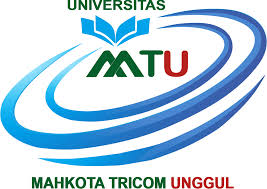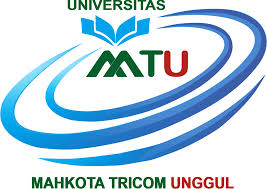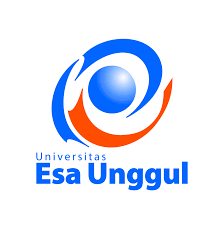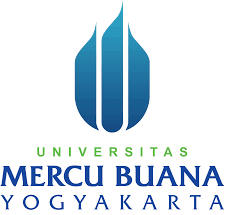Analysis of K-Means and K-Medoids Algorithms for Grouping Academic Values of Prospective New Students in Selection of Campus Scholarship Recipients
DOI:
https://doi.org/10.55927/fjst.v4i9.224Keywords:
Clustering, Student Academic Grades, K-Means and K-Medoids Algorithms, Campus ScholarshipsAbstract
University of Mahkota Tricom Unggul is one of the private universities (PTS) that prepares various scholarships every year, one of which is the Foundation scholarship. However, so far the University in selecting prospective new students who are eligible to receive Foundation scholarships still uses a conventional model, so it is less effective, efficient, and less professional. As a result, it is less objective in selecting prospective new students in scholarship acceptance. Therefore, an algorithm is needed to group data that is eligible to receive Foundation scholarships using an algorithm. The algorithms used to solve the existing problem are the K-means and Kmedoids algorithms, then analyzed which one is effective in solving the problem. Where both can group data well, but the K-medoids algorithm is more effective in solving than K- Means.
References
Bordbar, S., Mirzaei, S., Bahmaei, J., Atashbahar, O., & Yusefi, A. R. (2025). Predicting students' academic performance based on academic identity, academic excitement, and academic enthusiasm: evidence from a cross-sectional study in a developing country.BMC Medical Education,25(1).
Chenan, H., & Tsutsumida, N. (2024).A Scalable k-Medoids Clustering via Whale Optimization Algorithm.
Hailu, M., Abie, A., Mehari, MG, Dagnaw, TE, Worku, NK, Esubalew, D., Limenh,
L.W., Delie, A.M., Melese, M., & Fenta, E.T. (2024). Magnitude of academic performance and its associated factors among health science students at Eastern Ethiopia University's 2022.BMC Medical Education,24(1).
Hu, H. (2023). An Effective and Adaptable K-means Algorithm for Big Data Clusters Analysis.Pattern Recognition,139.
Ikotun, A. M. (2023). K-means clustering algorithms: A comprehensive review, variants analysis, and advances in the era of big data.Information Sciences,622, 178–210.
Marinos, G., Symvoulidis, C., & Kyriazis, D. (2023). K-Medoids-Surv: A Patients Risk Stratification Algorithm Considering Censored Data.Lecture Notes in Computer Science (Including Subseries Lecture Notes in Artificial Intelligence and Lecture Notes in Bioinformatics),13589 LNAI. Marlina, D.,
Lina, N., Fernando, A., & Ramadhan, A. (2018). Implementation of the K-Algorithm
Medoids and K-Means for Clustering of Distribution Areas of Disabilities in Children. CoreIT Journal: Journal of Computer Science and Information Technology Research Results,4(2).
Marpaung, P., & Siahaan, RF (2021). Application of the K-Means Clustering Algorithm for Population Density Mapping Based on the Population of Medan City.J-SAKTI (Journal of Computer Science and Informatics).
Mulyaningsih, T., Dong, S., Miranti, R., Daly, A., & Purwaningsih, Y. (2022). Targeted scholarship for higher education and academic performance: Evidence from Indonesia.International Journal of Educational Development,88.
Orisa, M. (2022). Cluster Optimization in the K-Means Algorithm.SENIATI Proceedings,6(2).
Oyewole, G. J., & Thopil, G. A. (2023). Data clustering: applications and trends.Artificial Intelligence Review,56(7).
Preddy, …, Marpaung, P., Pebrian, I., & Putri, W. (2023). Application of Data Mining for Population Density Clustering of Deli Serdang Regency Using the K-Means Algorithm.Journal of Computer Science and Information Systems (JIKOMSI),6(2), 64– 70.
Sardar, TH (2020). An Analysis of Distributed Document Clustering Using MapReduce Based on K-Means Algorithm.Journal of the Institution of Engineers India Series B,101(6), 641–650.
Shah, N., & Shah, K. (2023). Introduction to Data Mining. InPractical Data Mining
Techniques and Applications.
Sun, S. J., Chen, L. S., Mei, B. X., Li, T., Ye, X. Q., & Shi, M. (2023). A Weighted k-Medoids Clustering Algorithm Based on Granular Computing.Proceedings - 2023 IEEE 10th International Conference on Cyber Security and Cloud Computing and 2023 IEEE 9th International Conference on Edge Computing and Scalable Cloud, CSCloud-EdgeCom 2023.
Sureja, N., Chawda, B., & Vasant, A. (2022). An improved K-medoids clustering approach based on the crowd search algorithm.Journal of Computational Mathematics and Data Science,3.
Downloads
Published
Issue
Section
License
Copyright (c) 2025 Preddy Marpaung

This work is licensed under a Creative Commons Attribution 4.0 International License.


































